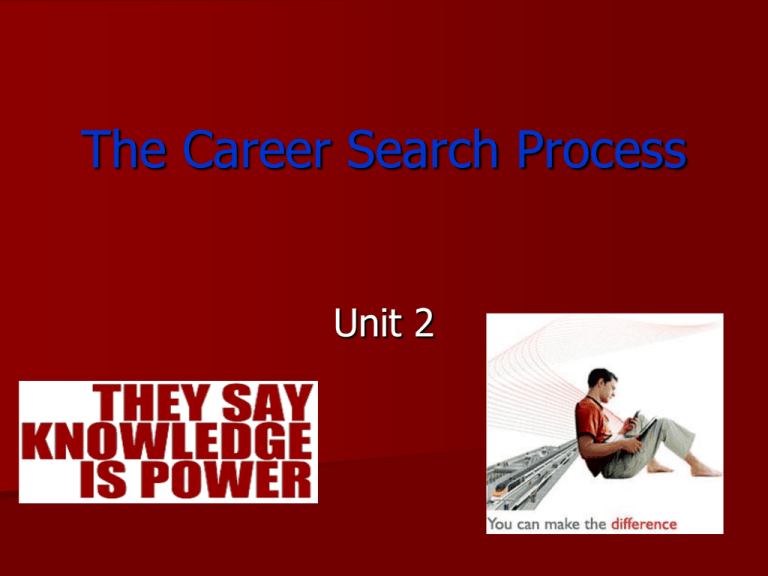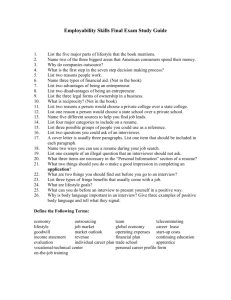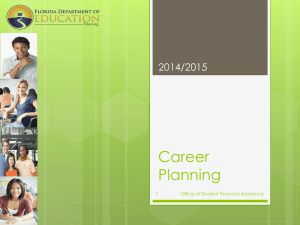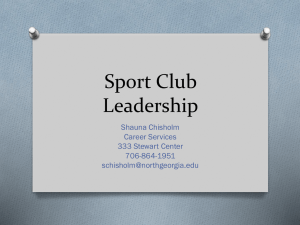The Career Search Process Unit 2
advertisement

The Career Search Process Unit 2 Choosing a Career Getting to Know Yourself What do you value? Money and Wealth Creativity Security Personal Growth Independence Family Physical Risk Community Recognition Location What are your Interests and Aptitudes? Personal Interests – activities you find rewarding over an extended period of time Aptitude – natural talent for learning some skill over others (math, languages) Common Aptitudes Verbal Numerical Spatial Manual Dexterity Physical Coordination What is Your Personality? Personality – your unique blend of qualities that defines you as an individual Personality Types 1. Realistic 2. Investigative 3. Creative 4. Social 5. Enterprising Exploring Careers There can be a difference between a job and a career. Job – Set of tasks you accomplish as you work Career – an occupation to which you have made a longterm commitment Federal Sources of Career Information Occupational Outlook Handbook (OOH) Occupational Information Network (O*NET) Guide for Occupational Exploration (GOE) Helpful Career Web-sites careercruising.com PW: lz and then bears schoolboard.com Career Clusters There are 15 career clusters identified by the United States Office of Education It cannot hurt to do the following: 1. 2. 3. 4. 5. 6. Talk to people concerning careers Interview the “Experts” Write Letters or e-mail Volunteer Determine skills, training and education needed Finance your plans Where to Look for Job Openings 1. 2. 3. 4. 5. 6. Talk to people who you know Send applications to potential employers Check Newspapers Research position openings on the internet Speak to employment agencies Contact temporary agencies Application Process Preparing a Resume Be brief (one page) Express yourself clearly Use the proper words Always tell the truth Check your resume – 0 mistakes Ask an expert to review your resume Do Not Lie on a Resume Sample Resume Sample Cover Letter Completing an Application Your name, address, telephone number, social security number Information detailing education and training A list of your work experience – with references (names, phone numbers, addresses, dates of employment and reasons for leaving) Name of job applying for and salary desired Sample Job Application Application, page 2 Interviewing Successfully Pre-Interview Checklist Be on time (10-15min.) – call ahead to confirm appointment/ask for directions Know your resume Know the Company or Employer Anticipate and Practice General Questions Dress Well – specifics need to be discussed Practice getting rid of nervous body movements or repetitive language (like or um) During the Interview Shake hands firmly with the interviewer Be polite and professional Maintain appropriate eye contact with interviewer while sitting up straight Think about answers before speaking Fold your hands not your arms Try to stay positive, keep out the negative Prepare to ask questions Thank the interviewer for their time Plan to write a follow-up letter Questions that cannot be asked during in an interview: Have you ever seen a therapist? Are you planning to have a family? What is your medical history? You’re a Christian, aren’t you? What country are you from? Do you have a boyfriend or husband? And Finally, Decision Time Everyone likes to be liked/chosen. However, keep in mind you are also interviewing the interviewer. You eventually may have to commit to either accepting a position or turning a position down.




